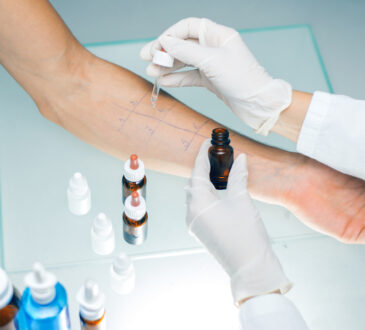
Childbirth is a transformative experience for a woman, not only physically but also emotionally. Along with the joy of welcoming a new life, it brings about significant hormonal changes in the body. These hormonal fluctuations can have a profound impact on a woman’s skin health postpartum.
Hormonal Changes During and After Pregnancy
Pregnancy is characterized by an increase in hormone levels, particularly estrogen and progesterone. These hormones play a crucial role in preparing the body for pregnancy and supporting the growth and development of the fetus. However, after childbirth, there is a sudden drop in hormone levels, which can lead to various changes in the body, including the skin.
One of the most common skin concerns experienced by women after childbirth is acne. The hormonal fluctuations can trigger an overproduction of sebum, leading to clogged pores and the formation of pimples. Additionally, the decrease in estrogen levels can result in dry and dull skin, making it more prone to irritation and inflammation.
Stretch Marks and Skin Elasticity
Another significant impact of hormonal changes after childbirth is the development of stretch marks. As the body rapidly expands during pregnancy, the skin stretches to accommodate the growing baby. The sudden decrease in hormone levels postpartum can affect the skin’s elasticity, making it difficult for it to regain its original shape. This can lead to the formation of stretch marks, particularly in areas like the abdomen, breasts, and thighs.
Melasma and Pigmentation
Hormonal changes can also contribute to the development of melasma, a common skin condition characterized by dark patches on the face. These patches are caused by an increase in melanin production triggered by hormonal fluctuations. Melasma can be particularly distressing for new mothers, as it affects the overall complexion and can impact self-esteem.
Dealing with Hormonal Skin Changes
While hormonal changes after childbirth can have a significant impact on skin health, there are steps that new mothers can take to manage these changes and promote skin healing:
- Establish a consistent skincare routine: Cleansing, moisturizing, and protecting the skin with sunscreen are essential steps in maintaining skin health.
- Hydrate from within: Drinking an adequate amount of water helps keep the skin hydrated and can improve its overall appearance.
- Manage stress levels: High stress levels can worsen hormonal imbalances and have a negative impact on skin health. Engaging in stress-reducing activities such as yoga or meditation can be beneficial.
- Consult a dermatologist: If skin concerns persist or worsen, it is advisable to seek professional advice from a dermatologist who can provide targeted treatments.
It is important to remember that the hormonal changes experienced after childbirth are temporary and part of the body’s natural process of recovery. With time, many women find that their skin health improves, and any postpartum skin concerns diminish.
The hormonal changes that occur after childbirth can have a significant impact on a woman’s skin health. The fluctuations in hormone levels can lead to acne, stretch marks, melasma, and other skin concerns. By establishing a consistent skincare routine, staying hydrated, managing stress levels, and seeking professional advice when needed, new mothers can effectively manage these changes and promote skin healing.




